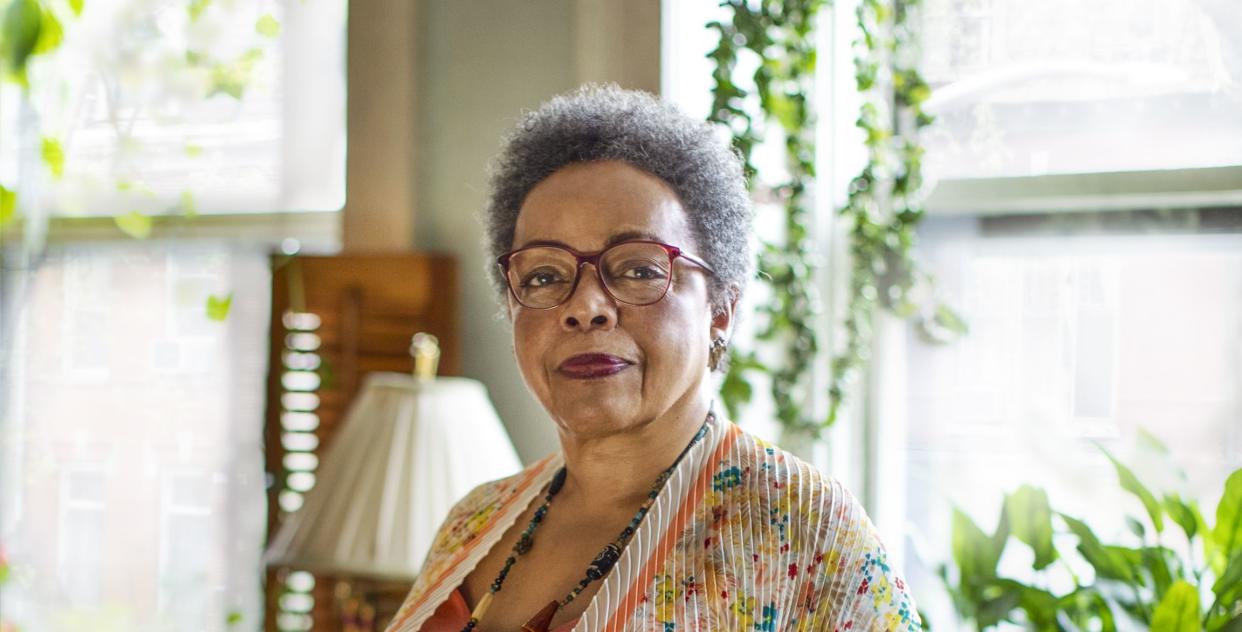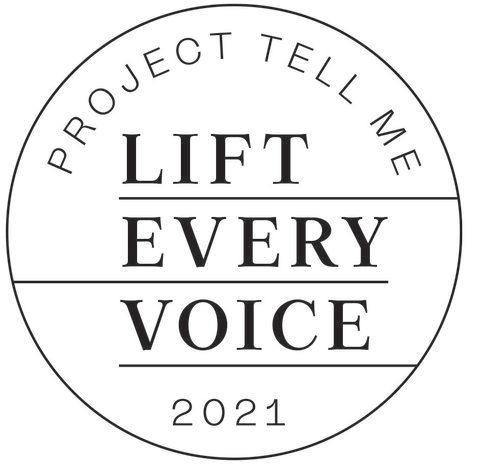Marie Dutton Brown Re-Wrote the Culture

Marie Dutton Brown started her career in publishing more than 50 years ago. She founded her literary agency, Marie Brown Associates, in 1984, and is one of the few Black women agents in the industry. “I have been strengthened by this journey, and I have learned to honor the fact that I’ve been given this responsibility,” she tells Miami University senior Sara Bey. The following is an edited and condensed version of their conversation.

Lift Every Voice, created in partnership with Lexus, records the wisdom and life experiences of the oldest generation of Black Americans by connecting them with a new generation of Black journalists. The oral history series is running across Hearst magazine, newspaper, and television websites around Juneteenth 2021. Click here for the whole portfolio.
I graduated from Penn State and taught junior high school. Loretta Barrett, an executive editor at Doubleday, came to one of our training sessions to talk about the new books they were publishing. She had taught with my mom in Philadelphia. She invited me, whenever I was in New York, to have lunch.
So I went off to New York in 1967 and called Loretta for lunch. It was a very publishing-type experience: fancy French restaurant, something I had never experienced in life. It ended up with a job offer. I said, Well, I don’t know when this opportunity will occur again, and I love books.
The job was comparable to being an intern now. Editorial was really where I wanted to be. I became an editorial assistant.
Then, after two years, I left. I got married, moved to California. I worked in a bookstore and on a magazine, The Black Politician. I didn’t think very much of Los Angeles. I was just a New Yorker in my heart.
I came back to the East Coast in the early 1970s. Doubleday said, Would you like to have your old job back? I told them, yeah … but with a promotion. Eventually, I became a senior editor at Doubleday. It was sort of challenging to be considered the authority on everything Black. I experienced blatant racism as well as subliminal racism. I had to determine how I was going to continue working in that environment and not lose my soul.
I left to become editor in chief of a Black women’s magazine, Élan, which folded after three issues. I didn’t know what I was going to do then.
I tried to find a job in book publishing, and it was nearly impossible. When I went on interviews, it was as if I couldn’t read. People were saying, you should be an agent. It took me a long time to really adjust to being on the other side of the fence, so to speak.
I have learned to be focused. Now, mind you, I’ve had a good time, and I’m not just sitting up all the time, 24/7, reading manuscripts. I have been introduced to the best of our culture through the work that I’ve done. Because of publishing, I was able to experience these wonderful aspects of Black life.
I learned, sometimes the hard way, how to function in that corporate world. But I’ve never chosen that majority world over my community and my culture because that has strengthened me. You say, Oh, my God, how am I going to get up and do this another day, but it’s the beauty of Black life. It’s being able to see what strengths you gain from all of what we’ve been through.
Reported by Sara Bey, a freelance writer from the Chicago area. Bey has written for The Miami Student newspaper as well as Men’s Health magazine. She is studying psychology and family science with a minor in art therapy.
Photographed by Flo Ngala, a New York-based photographer with a passion for authentic image-making and photojournalism. Born to a West African family in Harlem, Ngala spent her teenage years as a competitive figure skater. This would later inspire her first New York Times assignment and cover in 2019: “When I Skate It Just Feels Free,” in which she captured the portraits of the next generation of Black female figure skaters.
Turn Inspiration into Action
Here are two groups you could consider supporting: The National Association of Black Journalists allows you to direct your dollars to scholarships and fellowships that support the educational and professional development of aspiring young journalists. The National Caucus & Center on Black Aging is dedicated to improving the quality of life of older African-Americans with educational programs that provide them the tools they need to advocate for themselves.
You Might Also Like

